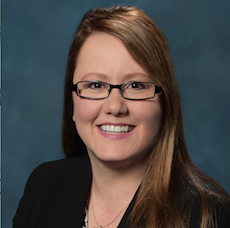
A month or two ago when my movie club friends and I saw the preview for “The Intern,” I knew right away that I wanted to see it. It promised big-name stars and looked entertaining. And besides, Robert De Niro kind of reminds me of my dad — shorter in stature, graying hair, kind of quiet.
When I saw the film Friday night — it was, indeed, entertaining — it was apparent that the looks and demeanor of De Niro’s character were not the only things about the movie that reminded me of my dad. The character’s situation and how he addressed it did, too.
In the movie, De Niro plays 70-year-old widower Ben Whittaker, who joins an online retail clothing company as a “senior intern,” looking to contribute something in his retirement years. My father, too, started ramping up his volunteering efforts in retirement, lending his professional skills to nonprofit organizations, staffing the local historical society’s archives, serving as an officer in several clubs that nurtured his avocations, and giving of himself in additional ways.
In fact, plenty of nonfictional Ben Whittakers are proving that retirement can be just another chapter in life, and a good one, filled with work for pay, activities and volunteering efforts, and interactions with peers and members of younger generations.
- A 2014 Merrill Lynch/Age Wave study [PDF] found that retirees were four times more likely than others to say they are continuing to work because they “want to” rather than because they “have to.” In fact, working retirees said that staying mentally and physically active, maintaining social connections and having a strong sense of self-worth were more important reasons to work than the money. New data from the Centers for Disease Control and Prevention indicate the positive health benefits that can accrue among working older adults, and a 2012 brief [PDF] from the Corporation for National and Community Service notes the positive health effects of volunteering.
- U.S. Department of Education data issued in 2014 indicate that in 2013, about 520,000 adults aged 50 to 64 were taking undergraduate college classes and about 200,000 were pursuing post-baccalaureate studies. Among those aged 65 or more years, the numbers were about 55,000 and 11,000, respectively. In addition to career training, some older adults are simply enjoying learning for the sake of learning by taking advantage of programs that allow them to audit classes at no charge.
- Intergenerational programs in seniors housing are benefitting people of all ages. Examples include artist-in-residence programs and other arrangements by which college students and assisted living residents live in the same building.
“The Intern” gently acknowledges the very real issues that can take a toll on men’s and women’s bodies and psyches as they age. It also pays tribute to the value of experience. Its bottom line is that advancing years do not necessarily mean retreating opportunities to feel relevant, included and loved. That’s something you know from your interactions with older adults, and it’s encouraging to see a film that is conveying that positive message to a wide audience.
Lois A. Bowers is senior editor of McKnight’s Senior Living. Follow her on Twitter at @Lois_Bowers.



